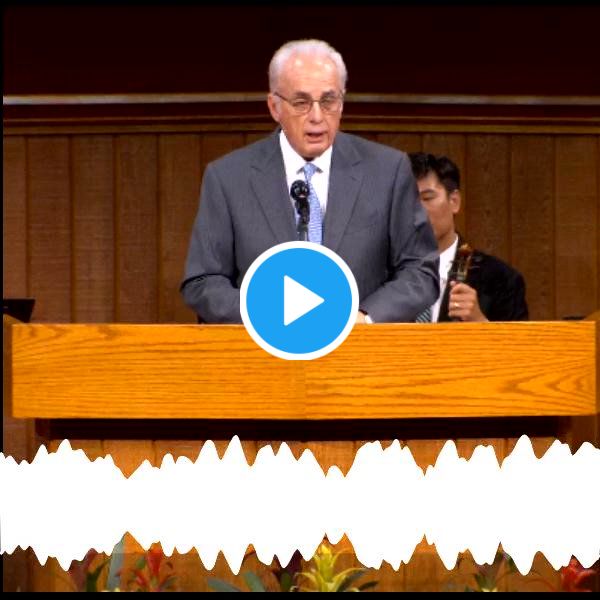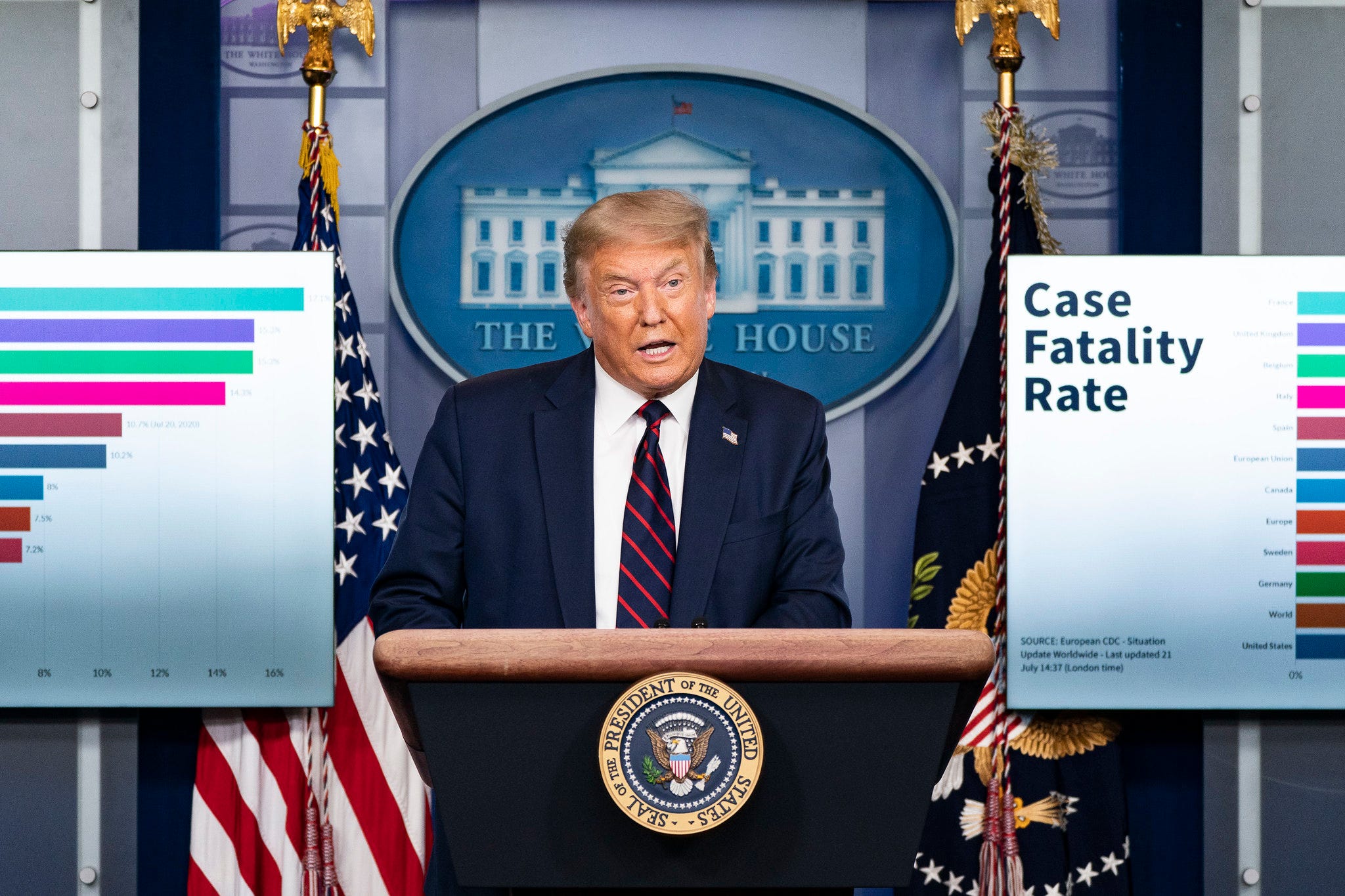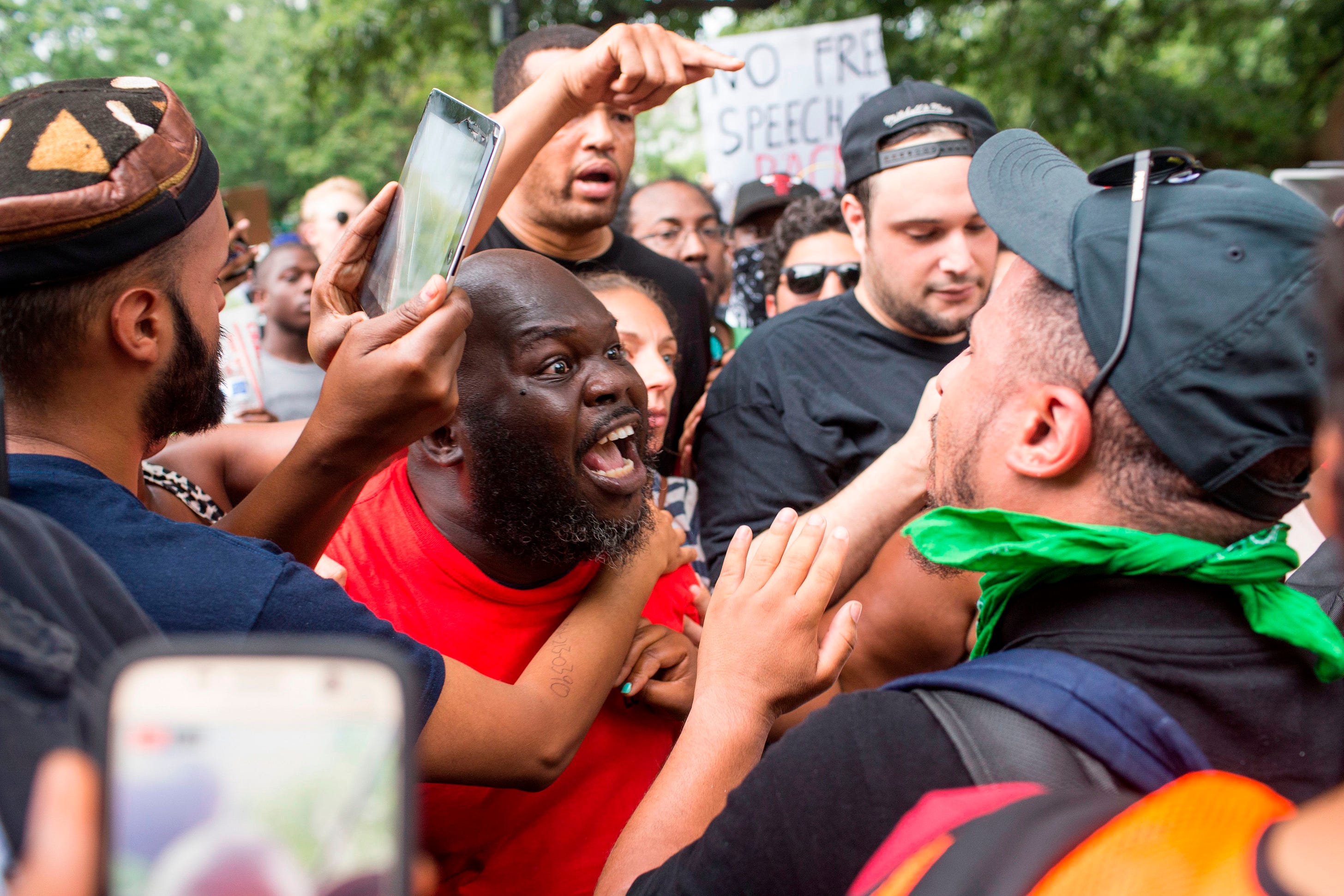ABM
Happily Married In Music City, USA!
- Joined
- Sep 12, 2008
- Messages
- 31,865
- Likes
- 5,785
- Points
- 113
I've really come to appreciate David French's pieces. He's a Conservative Christian writer. But, get this, he does NOT like Trump, so we can nip that in the bud right away.
Anywho, I'm sure many of you will blow this off, but I do think he makes some very good overall points. I feel he's very fair and balanced, while still being a Christian.
It was e-mailed to me, so I'll just paste the entire article here:
Christians, Gun Rights, and the American Social Compact
Kyle Rittenhouse and the deadly wages of recklessness.
David French
Sep 6

I’m going to begin with my two favorite quotes from two American founders—the two quotes that I believe set up the fundamental nature of the American social compact. The first is the most famous. It’s Thomas Jefferson in the Declaration of Independence: “We hold these truths to be self-evident, that all men are created equal, that they are endowed by their Creator with certain unalienable Rights, that among these are Life, Liberty and the pursuit of Happiness.”
He didn’t stop there, however. The very next words are key: “That to secure these rights, Governments are instituted among Men, deriving their just powers from the consent of the governed.” The meaning is clear. Each and every human being possesses God-given rights, and a fundamental purpose of government is to protect those rights. That’s the government’s side of the social compact, and these aspirational words were operationalized in the Bill of Rights. The Declaration is the American mission statement. The Constitution made it law.
But there’s another side to the American social compact. We know the obligation of the government, but what about the obligation of the citizen? Here’s where we turn to Thomas Jefferson’s rival, John Adams. And Adams gives us the second quote that frames our constitutional republic. Writing to the Massachusetts militia, he says, “Our Constitution was made only for a moral and religious People. It is wholly inadequate to the government of any other.”
But that’s not all he said. In a less-famous section, he wrote, “We have no Government armed with Power capable of contending with human Passions unbridled by morality and Religion. Avarice, Ambition, Revenge or Galantry, would break the strongest Cords of our Constitution as a Whale goes through a Net.” Our government wasn’t built to force men to be moral. Instead, it depends on man’s morality for the system to work.
Thus, the American social compact—the government recognizes and defends fundamental individual liberty, and the individual then exercises that liberty virtuously, for virtuous purposes. Or, to kinda-sorta paraphrase Spiderman’s Uncle Ben, with great liberty comes great responsibility.
That brings me to American gun rights and to Kyle Rittenhouse, the young man who killed two people and wounded one during a series of encounters with protesters in Kenosha, Wisconsin. Let me be clear: I’m not going to use this newsletter to adjudicate his case. The investigation is ongoing, and there is both evidence that he acted in self-defense during the fatal encounters, and evidence he threatened at least one innocent individual prior to the encounters by pointing his weapon at him without justification. There is still much we don’t know.
But here are some things we do know. By arming himself and wading into a riot, Rittenhouse behaved irresponsibly and recklessly. I agree completely with Tim Carney’s assessment here:
The 17-year-old charged with two homicides in Kenosha, Wisconsin, was not a hero vigilante, nor was he a predatory white supremacist. He was, the evidence suggests, a foolish boy whose foolish decisions have taken two lives and ruined his own.
If you go armed with a rifle to police a violent protest, you are behaving recklessly. The bad consequences stemming from that decision are at least partly your fault.
Moreover, when Christians celebrate or even merely rationalize his actions they are also behaving irresponsibly and recklessly. Even if Rittenhouse is legally vindicated, his decision to exercise a right resulted in a grave wrong.
Why would I say that Christians are celebrating Rittenhouse? For one thing, a Christian crowdfunding site has raised more than $450,000 for his legal defense. Christian writers have called him a “good Samaritan” and argued that he’s a “decent, idealistic kid who entered that situation with the desire to do good, and, in fact, did do good.” (Emphasis added.)
Rittenhouse’s case comes on the heels of the Republican decision to showcase Mark and Patricia McCloskey at the Republican National Convention, the St. Louis couple that has been criminally charged for brandishing weapons at Black Lives Matter protesters who were marching outside their home.
The McCloskeys are obviously entitled to a legal defense, and I am not opining on the legal merits of their case (again, there is much we don’t know), but as a gun-owner, I cringed at their actions. They weren’t heroic. They were reckless. Pointing a weapon at another human being is a gravely serious act. It’s inherently dangerous, and if done unlawfully it often triggers in its targets an immediate right of violent (and potentially deadly) self-defense.
At the same time, we’re seeing an increasing number of openly-armed, rifle-toting conservative vigilantes not just aggressively confronting far-left crowds in the streets, but also using their weapons to intimidate lawmakers into canceling a legislative session.
In other words, we are watching gun-owners, sometimes cheered on by Christian conservatives, breaking the social compact. They aren’t exercising their rights responsibly, they’re pushing them to the (sometimes literally) bleeding edge, pouring gasoline on a civic fire, and creating real fear in their fellow citizens.
This is exactly when a healthy conservative Christian community rises up and quite simply says, “No.” With one voice it condemns vigilantism and models civic responsibility.
Defend due process for Rittenhouse and the McCloskeys, yes, but do not celebrate, rationalize, or excuse those who go openly armed into the public square—as vigilantes or as protesters. Americans enjoy greater rights to possess or carry weapons than any time in the modern history of the United States, yet exercising those rights can be terrifying to friends and neighbors unless they’re exercised responsibly and respectfully.
Or, to put it another way, absent an imminent, immediate threat to liberty, the focus of Christian gun owners should be on their responsibilities, not their rights.
In fact, that focus extends well beyond the Second Amendment. It’s a general principle applicable to every exercise of individual or collective liberty. While it’s entirely justifiable for Christian churches to challenge discriminatory pandemic regulations that favor secular mass gatherings over religious worship (such as Nevada’s preferential treatment of casinos), it’s not justifiable for churches to engage in reckless conduct as they defend their freedom.
To take one prominent example, pastor John MacArthur is entirely within his rights to challenge California’s pandemic restrictions on religious worship. But when he does so through also encouraging defiance of regulations and norms on social distancing and masking, he’s reckless. He’s endangering the health and lives of not just his congregants, but also of members of the public who encounter his congregants. In fact, MacArthur is quite proud that his congregation hasn’t distanced and doesn’t wear masks:

No one can argue that MacArthur isn’t religious, but this is certainly not moral. He’s breaking the social compact.
Regular readers of this newsletter know that I’m somewhat obsessed with a rather simple question—is there such thing as a distinctive Christian presence in American political culture apart from Christian advocacy of specific issues? Or does the entirety of, for example, the conservative Christian presence in Republican politics boil down to the defense of specific liberties and the quest to overturn Roe?
The distinctive Christian presence has to include modeling the responsible, virtuous exercise of the rights its political movements seek to secure. It has to include using its voice and power to advocate for that responsibility and to oppose recklessness. Simply put, the republic was not designed to thrive if those who are religious are not also moral.
Thankfully, countless Christian gun-owners are upholding the social compact. They focus on their responsibilities, and they do not recklessly seek out conflict. Indeed, the best evidence indicates that concealed-carry permit holders are more law-abiding than the police. Countless Christian congregants and pastors are also upholding the social compact in the midst of the pandemic. They’ve show incredible patience in abiding by even facially-unfair pandemic regulations, and they’ve gone above and beyond in their quest to protect the health of their friends and neighbors.
It’s worth asking whether this actual moral majority is the true face of American Christian politics, however, or whether their passivity has allowed different voices to dominate. It’s not enough to be individually responsible. It’s important to be corporately and publicly prudent, including by condemning the actions of those who are not. America’s Evangelicals are the most powerful faction in what is (for now) the world’s most powerful political party. If they permit irresponsible actors to become the face of American liberty, they undermine the very freedoms they seek to save.
Anywho, I'm sure many of you will blow this off, but I do think he makes some very good overall points. I feel he's very fair and balanced, while still being a Christian.
It was e-mailed to me, so I'll just paste the entire article here:
Christians, Gun Rights, and the American Social Compact
Kyle Rittenhouse and the deadly wages of recklessness.
David French
Sep 6

I’m going to begin with my two favorite quotes from two American founders—the two quotes that I believe set up the fundamental nature of the American social compact. The first is the most famous. It’s Thomas Jefferson in the Declaration of Independence: “We hold these truths to be self-evident, that all men are created equal, that they are endowed by their Creator with certain unalienable Rights, that among these are Life, Liberty and the pursuit of Happiness.”
He didn’t stop there, however. The very next words are key: “That to secure these rights, Governments are instituted among Men, deriving their just powers from the consent of the governed.” The meaning is clear. Each and every human being possesses God-given rights, and a fundamental purpose of government is to protect those rights. That’s the government’s side of the social compact, and these aspirational words were operationalized in the Bill of Rights. The Declaration is the American mission statement. The Constitution made it law.
But there’s another side to the American social compact. We know the obligation of the government, but what about the obligation of the citizen? Here’s where we turn to Thomas Jefferson’s rival, John Adams. And Adams gives us the second quote that frames our constitutional republic. Writing to the Massachusetts militia, he says, “Our Constitution was made only for a moral and religious People. It is wholly inadequate to the government of any other.”
But that’s not all he said. In a less-famous section, he wrote, “We have no Government armed with Power capable of contending with human Passions unbridled by morality and Religion. Avarice, Ambition, Revenge or Galantry, would break the strongest Cords of our Constitution as a Whale goes through a Net.” Our government wasn’t built to force men to be moral. Instead, it depends on man’s morality for the system to work.
Thus, the American social compact—the government recognizes and defends fundamental individual liberty, and the individual then exercises that liberty virtuously, for virtuous purposes. Or, to kinda-sorta paraphrase Spiderman’s Uncle Ben, with great liberty comes great responsibility.
That brings me to American gun rights and to Kyle Rittenhouse, the young man who killed two people and wounded one during a series of encounters with protesters in Kenosha, Wisconsin. Let me be clear: I’m not going to use this newsletter to adjudicate his case. The investigation is ongoing, and there is both evidence that he acted in self-defense during the fatal encounters, and evidence he threatened at least one innocent individual prior to the encounters by pointing his weapon at him without justification. There is still much we don’t know.
But here are some things we do know. By arming himself and wading into a riot, Rittenhouse behaved irresponsibly and recklessly. I agree completely with Tim Carney’s assessment here:
The 17-year-old charged with two homicides in Kenosha, Wisconsin, was not a hero vigilante, nor was he a predatory white supremacist. He was, the evidence suggests, a foolish boy whose foolish decisions have taken two lives and ruined his own.
If you go armed with a rifle to police a violent protest, you are behaving recklessly. The bad consequences stemming from that decision are at least partly your fault.
Moreover, when Christians celebrate or even merely rationalize his actions they are also behaving irresponsibly and recklessly. Even if Rittenhouse is legally vindicated, his decision to exercise a right resulted in a grave wrong.
Why would I say that Christians are celebrating Rittenhouse? For one thing, a Christian crowdfunding site has raised more than $450,000 for his legal defense. Christian writers have called him a “good Samaritan” and argued that he’s a “decent, idealistic kid who entered that situation with the desire to do good, and, in fact, did do good.” (Emphasis added.)
Rittenhouse’s case comes on the heels of the Republican decision to showcase Mark and Patricia McCloskey at the Republican National Convention, the St. Louis couple that has been criminally charged for brandishing weapons at Black Lives Matter protesters who were marching outside their home.
The McCloskeys are obviously entitled to a legal defense, and I am not opining on the legal merits of their case (again, there is much we don’t know), but as a gun-owner, I cringed at their actions. They weren’t heroic. They were reckless. Pointing a weapon at another human being is a gravely serious act. It’s inherently dangerous, and if done unlawfully it often triggers in its targets an immediate right of violent (and potentially deadly) self-defense.
At the same time, we’re seeing an increasing number of openly-armed, rifle-toting conservative vigilantes not just aggressively confronting far-left crowds in the streets, but also using their weapons to intimidate lawmakers into canceling a legislative session.
In other words, we are watching gun-owners, sometimes cheered on by Christian conservatives, breaking the social compact. They aren’t exercising their rights responsibly, they’re pushing them to the (sometimes literally) bleeding edge, pouring gasoline on a civic fire, and creating real fear in their fellow citizens.
This is exactly when a healthy conservative Christian community rises up and quite simply says, “No.” With one voice it condemns vigilantism and models civic responsibility.
Defend due process for Rittenhouse and the McCloskeys, yes, but do not celebrate, rationalize, or excuse those who go openly armed into the public square—as vigilantes or as protesters. Americans enjoy greater rights to possess or carry weapons than any time in the modern history of the United States, yet exercising those rights can be terrifying to friends and neighbors unless they’re exercised responsibly and respectfully.
Or, to put it another way, absent an imminent, immediate threat to liberty, the focus of Christian gun owners should be on their responsibilities, not their rights.
In fact, that focus extends well beyond the Second Amendment. It’s a general principle applicable to every exercise of individual or collective liberty. While it’s entirely justifiable for Christian churches to challenge discriminatory pandemic regulations that favor secular mass gatherings over religious worship (such as Nevada’s preferential treatment of casinos), it’s not justifiable for churches to engage in reckless conduct as they defend their freedom.
To take one prominent example, pastor John MacArthur is entirely within his rights to challenge California’s pandemic restrictions on religious worship. But when he does so through also encouraging defiance of regulations and norms on social distancing and masking, he’s reckless. He’s endangering the health and lives of not just his congregants, but also of members of the public who encounter his congregants. In fact, MacArthur is quite proud that his congregation hasn’t distanced and doesn’t wear masks:
No one can argue that MacArthur isn’t religious, but this is certainly not moral. He’s breaking the social compact.
Regular readers of this newsletter know that I’m somewhat obsessed with a rather simple question—is there such thing as a distinctive Christian presence in American political culture apart from Christian advocacy of specific issues? Or does the entirety of, for example, the conservative Christian presence in Republican politics boil down to the defense of specific liberties and the quest to overturn Roe?
The distinctive Christian presence has to include modeling the responsible, virtuous exercise of the rights its political movements seek to secure. It has to include using its voice and power to advocate for that responsibility and to oppose recklessness. Simply put, the republic was not designed to thrive if those who are religious are not also moral.
Thankfully, countless Christian gun-owners are upholding the social compact. They focus on their responsibilities, and they do not recklessly seek out conflict. Indeed, the best evidence indicates that concealed-carry permit holders are more law-abiding than the police. Countless Christian congregants and pastors are also upholding the social compact in the midst of the pandemic. They’ve show incredible patience in abiding by even facially-unfair pandemic regulations, and they’ve gone above and beyond in their quest to protect the health of their friends and neighbors.
It’s worth asking whether this actual moral majority is the true face of American Christian politics, however, or whether their passivity has allowed different voices to dominate. It’s not enough to be individually responsible. It’s important to be corporately and publicly prudent, including by condemning the actions of those who are not. America’s Evangelicals are the most powerful faction in what is (for now) the world’s most powerful political party. If they permit irresponsible actors to become the face of American liberty, they undermine the very freedoms they seek to save.
Last edited:




 Kaitlan Collins @kaitlancollins
Kaitlan Collins @kaitlancollins ‘Play it down’: Trump admits to concealing the true threat of coronavirus in new Woodward bookPresident Donald Trump admitted he knew weeks before the first confirmed US coronavirus death that the virus was dangerous, airborne, highly contagious and “more deadly than even your strenuous flus,” and that he repeatedly played it down publicly, according to legendary journalist Bob Woodward in h…cnn.com
‘Play it down’: Trump admits to concealing the true threat of coronavirus in new Woodward bookPresident Donald Trump admitted he knew weeks before the first confirmed US coronavirus death that the virus was dangerous, airborne, highly contagious and “more deadly than even your strenuous flus,” and that he repeatedly played it down publicly, according to legendary journalist Bob Woodward in h…cnn.com John Dickerson @jdickerson
John Dickerson @jdickerson Aaron Blake @AaronBlake
Aaron Blake @AaronBlake Analysis | Timeline: The 109 times Trump has downplayed the coronavirus threatThe president’s unfailing optimism, over time.washingtonpost.com
Analysis | Timeline: The 109 times Trump has downplayed the coronavirus threatThe president’s unfailing optimism, over time.washingtonpost.com Donald J. Trump @realDonaldTrump
Donald J. Trump @realDonaldTrump Daniel Dale @ddale8
Daniel Dale @ddale8
